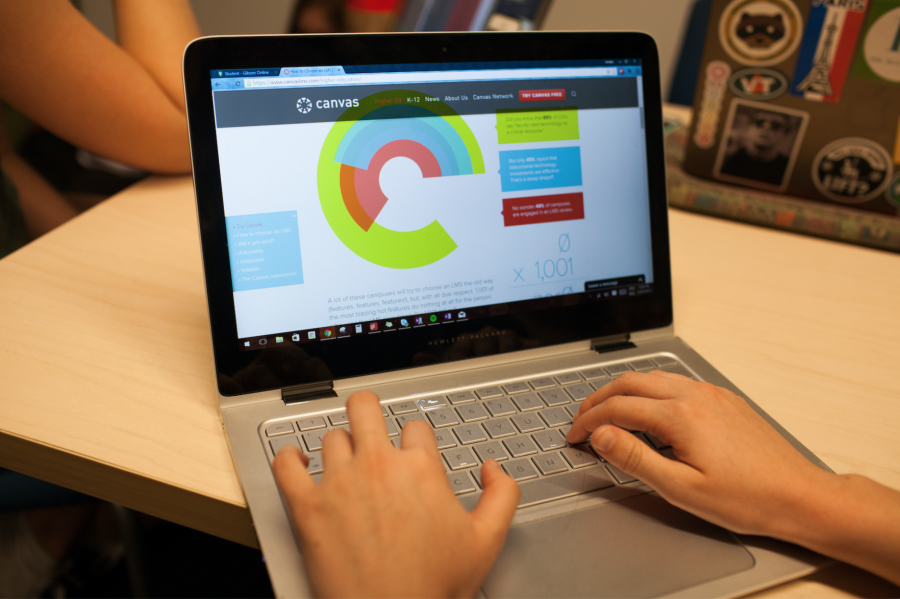Tulane explores BlackBoard alternatives
A student explore the official Canvas website. Tulane is running a pilot program of the learning management program as an alternative to Blackboard, the university uses now.
November 11, 2015
For those frustrated with the pace and features of the Blackboard system, a solution may be Canvas Learning Management System.
Tulane University is currently engaged in a pilot program to test out the learning management system Canvas as an alternative to the current Blackboard system. Canvas offers new features such as a customized notification system, video chat and a more streamlined user experience.
“Everything is really intuitive,” visiting classical studies professor Christopher Caterine said. “I probably needed a few hours just to get used to it and now it’s much much faster than Blackboard ever was.”
Caterine, along with 19 other professors, has already begun incorporating Canvas into his classes through a pilot program of Canvas. The pilot program is a smaller version of the full Canvas Learning Management System, with a limited number of users and features. In the spring semester, the pilot program will be available to all professors, though it will not be mandatory.
Tulane has been using Blackboard for over a decade, and the technology department reevaluates the system every few years. According to Technology Services, Canvas received the most positive feedback out of several options tested during the last evaluation in 2012; therefore, it was chosen for this year’s pilot program.
This transition comes as no surprise to teachers and students alike, as Blackboard is often regarded as slow and outdated.
“I had so much frustration with how slow Blackboard was,” Caterine said.
This frustration, combined with a desire to learn about new technology, led Caterine to join the pilot program this fall. Overall, he has seen a positive response from students.
“By and large, [my students] all said they like Canvas a lot more than Blackboard,” Caterine said, “I don’t think I’ve had anyone say they want to go back to Blackboard.”
Sophomore Maddie Rafkin agrees with her professor, as she too prefers Canvas.
“It’s more organized and well-designed,” Rafkin said. “It’s also easier to see your grades.”
Rafkin was also impressed by Canvas’ customized notifications. According to Technology Services’ Faculty Technology Coordinator Mike Griffith, these notifications can be connected to social media accounts and phone numbers. They can also be customized individually for each class. For example, Canvas can send notifications regarding a student’s math class to their cell phone number, or notify that student about their sociology class through Facebook.
“It allows not only for a more seamless relationship between Canvas and the rest of your digital world, but it also allows for a more seamless experience within the learning management system as well,” Griffith said.
Griffith said Canvas contains more collaboration tools than Blackboard, including a video chat feature for group assignments. He describes Canvas as more streamlined than other systems. Canvas has more efficient “click to goal” capabilities than Blackboard, meaning it takes fewer mouse clicks to get to the page or program the user is looking for.
According to Caterine, Canvas is more convenient than Blackboard from the professors’ end as well. It has cloud storage so that when he makes changes to a PowerPoint or document on his computer, that change is automatically applied online for his classes to see. In Blackboard, he has to upload these changes himself.
A midterm survey was conducted this fall to see how students and faculty in the pilot program felt about Canvas. According to Griffith, the results were positive in support of Canvas. This summer, members of the technology department will consult with participants of the pilot program to determine how to move forward. Nothing has been decided yet, but so far Canvas has received positive feedback from both teachers and students.










Leave a Comment